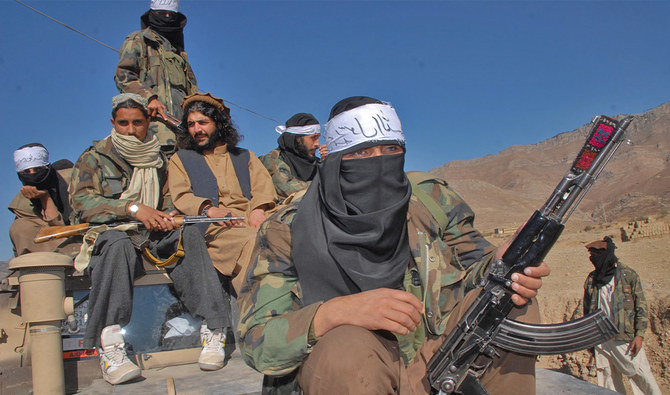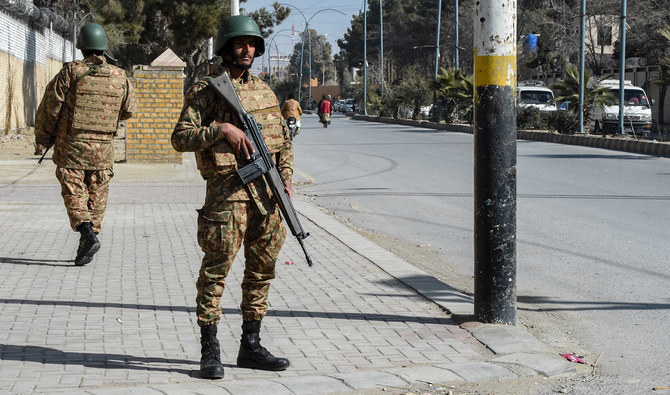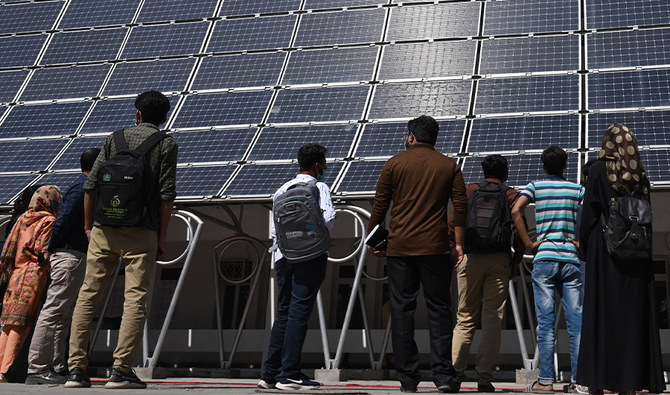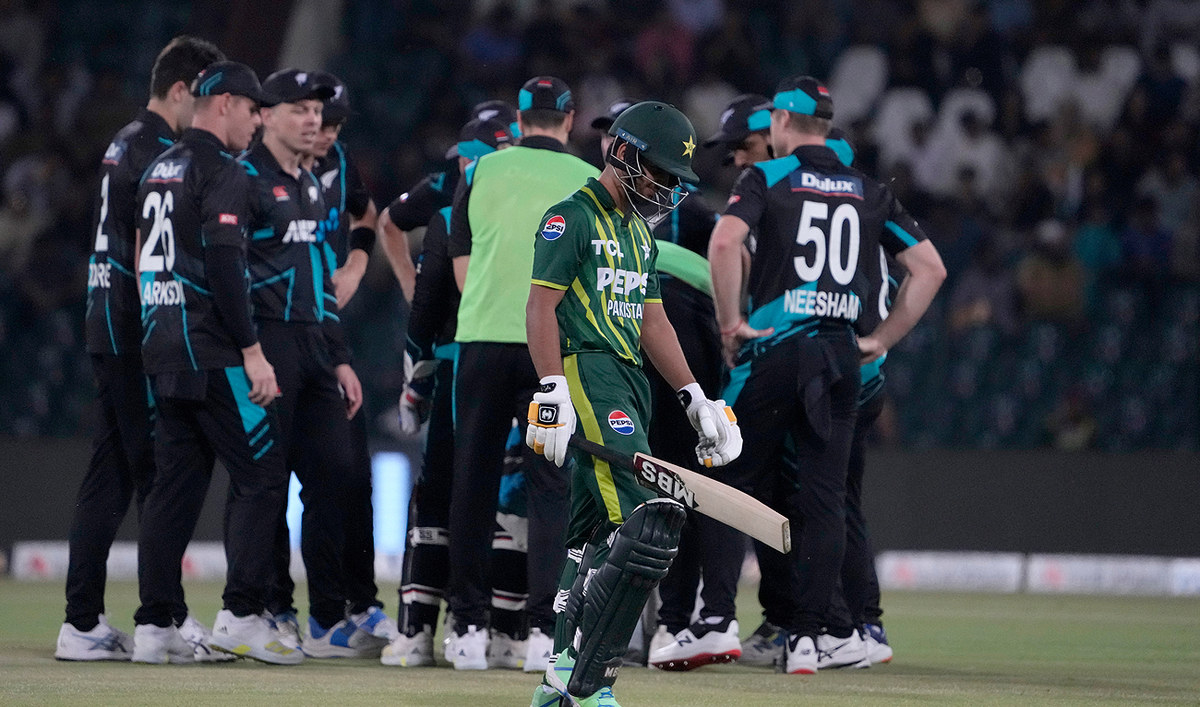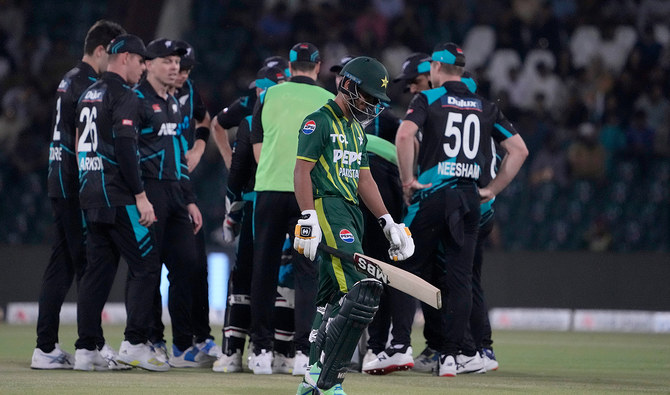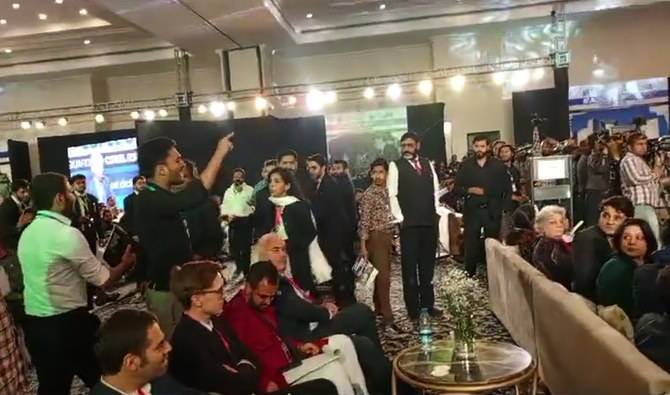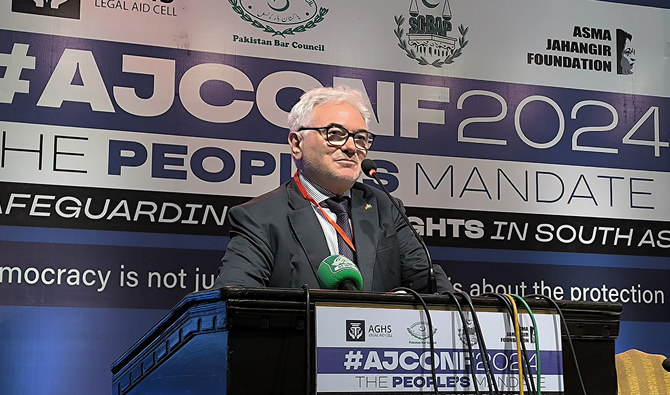ISLAMABAD: Experts this week called holding negotiations with local Taliban militants “the only solution” for the government to end militancy in the country but many were skeptical about whether the process would lead to a positive outcome after having failed in the past.
The Pakistani Taliban — known as the Tehreek-e-Taliban Pakistan (TTP) — has carried out some of the bloodiest attacks inside Pakistan since 2007, including a 2014 assault on a school in which 134 students were killed. The group is not directly affiliated with the Afghan Taliban, but pledges allegiance to them.
Pakistan has since 2007 carried out a number of military operations against the TTP, but, despite reducing the militant group’s footprint, with most fighters fleeing to neighboring Afghanistan, it has not been able to fully stop attacks, which had begun to rise again along its western border in recent months.
On June 4, the TTP extended a cease-fire with the government for an indefinite period, after two-day talks with a delegation of Pakistani tribal elders facilitated by the Afghan Taliban, who head the government in Kabul since US-led forces withdrew last year.
This week, Prime Minister Shehbaz Sharif chaired an in-camera meeting in Islamabad attended by over 100 lawmakers and officials to deliberate on talks with the Pakistani Taliban. The Parliamentary Committee on National Security subsequently gave its formal approval to hold the talks and also set up a parliamentary committee to oversee the process and ensure it was carried out within the ambit of the constitution.
Pakistan media has widely reported that at the heart of talks is an offer to accommodate the TTP with a safe passage back to Pakistan from Afghanistan in exchange for the group agreeing to a long-term cease-fire, dissolving its organization and possibly even joining mainstream politics.
“Pakistan wants to do it [talks] because the militancy problem is not over and they have realized that the only solution to this problem is that local Taliban should be integrated into the mainstream,” Rustam Shah Mohmand, a former Pakistani ambassador to Kabul, told Arab News on Wednesday.
“Because for how long can military operations go on?”
Though the Afghan Taliban were brokering talks with the TTP as they had to uphold an international obligation not to let any militants use Afghan soil to attack another country, Mohmand said the Kabul government also did not want to push the TTP forcibly to come to the table or agree to a deal.
Afghan Taliban leaders have in the past openly praised the TTP for its contributions to the insurgency against the United States and the former Afghan government, and hinted that it can’t abandon the Pakistani affiliate.
“Afghan Taliban are the facilitators and they are playing this role because for some time TTP fighters fought with them in Afghanistan,” Mohmand added. “But if they [Afghan Taliban] will force them toward Pakistan, then TTP will blame them for their arrests [in Pakistan].”
Speaking about the main demands of the militant group, the diplomat said the TTP wanted a resolution of the issue of missing persons, compensation for losses caused to them during military operations, and for Pakistan to scrap a 2018 law that did away with the semi-independent status of the former tribal regions, FATA, that dates back to British colonial rule.
The TTP also wants a substantial reduction of Pakistani military forces from the former tribal areas, which border Afghanistan and where the group was mostly harboring before being driven out through military operations.
“Government will not accept the revival of the tribal system as it requires a constitutional amendment,” Mohmand said. “Also, there is little hope on missing persons, so in reality, they can only move forward on the compensation issue.”
Abdul Basit Khan, a research fellow at the Singapore-based S. Rajaratnam School of International Studies, said the government’s negotiations with the TTP were a “sensible move” to reduce violence in Pakistan’s border regions.
“Pakistan wants to reduce violence and they have achieved it as due to the cease-fire, attacks have already gone down,” Khan told Arab News, adding that there was “no military solution” to the TTP problem.
“Parliamentary committee on national security has taken a clear position that only those demands which fall within the Pakistani constitutional framework will be accepted and any demand contradictory to it will not be accepted, such as reversal of FATA merger,” Khan said. “And TTP will also not be allowed to keep arms even if it is repatriated to Pakistan.”
Former diplomat, Ayaz Wazir, supported the talks but was skeptical there could be “permanent solution” unless the people of the former tribal regions were included in the decision-making process.
“The real problem with the decision-makers is that they never take people of FATA into the confidence, neither at the time of military operations, nor during the merger, and that vacuum has always provided space to the TTP to resurface,” he said.
Last year, the two sides had agreed to a cease-fire but talks broke down due to a disagreement over the release of TTP prisoners held by Pakistan, according to local media.
Another analyst, retired Brig. Mahmood Shah, a former chief of security in the tribal areas, said another round of negotiations with TTP after previous failures was a “bad idea” that was bound to fail. He also said the Pakistani constitution did not allow for talks with any group that challenged the nation’s sovereignty.
“These talks cannot succeed and will never produce a sustainable solution as TTP will not back down from its core ideology and keep pursuing it with the use of violence as a tool,” Shah told Arab News.
Between 2006 and 2015, nearly 50 militant groups declared war on the Pakistani state, conducting over 16,000 terror attacks, according to government figures. More than 80,000 people have been killed in the violence, which cost over $150 billion in losses to the Pakistani economy and drove 3.5 million people from their homes in the tribal regions where military operations were carried out.
“Pakistan have thrown them [TTP] out of tribal areas after extensive military operations and a lot of sacrifices,” said. “What was the rationale of all those previous actions if they will now be allowed to return?”



